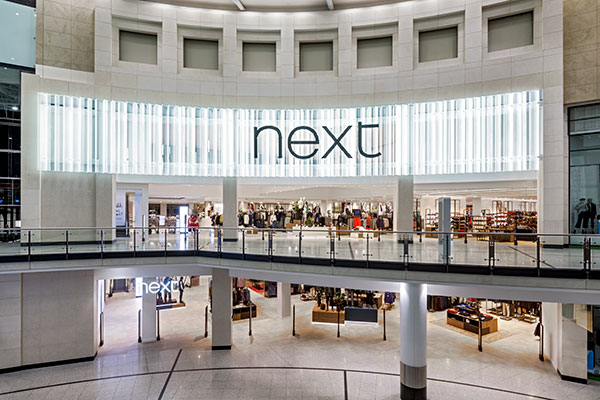Next expects full-year profits to halve from lockdown pain
Clothing seller has a frank outlook, but is well-placed to tackle retail downturn.
5th January 2021 09:22
by Richard Hunter from interactive investor
Clothing seller has a frank outlook, but is in a good position to tackle Covid-19 retail downturn.

Clothing retailer Next (LSE:NXT)continues to wade through treacle, with further online growth being offset by another blow to its retail business.
Even so, the group is continuing to navigate a difficult time with aplomb, according to today’s trading statement.
If there is any upside from a third lockdown for retailers it is that they now know what to expect. With its famed expertise in financial management, Next is a prime example of scenario planning. It also tends towards caution.
For example, for the latest announced lockdown it assumes store closures for all of February and March, while also taking a further provision for stores that are likely to become unprofitable.
The latter point may attract some unwelcome attention since it effectively reduces estimated full-year profits to £342 million. However, on trading alone the figure has increased to £370 million from the £365 million guided in late October.
Next is therefore anticipating a hit to full-year profits for the coming period, estimating an annual number of £670 million for the year 2021-22. This compares to £728 million from two years ago and includes the loss of earnings from the new shutdown.
However, in this reporting period it is the further growth in online business which mitigates some of the pain. Full-price online sales rose by 38% and the total number of online customers spiked by 24%.
While customers were less likely to use the company’s credit facility (finance interest income reduced by 13%), the level of defaults remain below last year with no noticeable deterioration. However, given the current uncertainty, the previous provision of £20 million will remain in place for the time being.
Quite apart from the additional store provision being made, it is unsurprisingly retail where trading has been hardest hit. Full-price sales reduced by 43%, although the contribution from online limited the overall reduction for the group to 1.1%. This is better than the 8% which the company had previously anticipated.
- Black Friday discounts drive down inflation
- Are you saving enough for retirement? Our calculator can help you find out
City centres and shopping centres were inevitably in the eye of the storm, although the fact that retail parks mostly traded stronger by some 15% offers some solace.
The impact on this year’s figures will be felt further during January, with an estimated drop of 14% in full-price sales leading to a full-year reduction of 16%. However, the significant improvement to the group’s finances remains intact, with the net debt figure still expected to reduce by £487 million to £625 million.
The share price reaction has also been relatively robust, with a drop of just 0.7% over the last year comparing to a decline of 14% for the wider FTSE 100.
In addition, the shares have added 104% since the April low, with the main drag being the market consensus of the stock. It has been a ‘hold’ for some considerable time given lofty expectations. Despite Next’s best efforts, this is likely to remain in place for the time being.
These articles are provided for information purposes only. Occasionally, an opinion about whether to buy or sell a specific investment may be provided by third parties. The content is not intended to be a personal recommendation to buy or sell any financial instrument or product, or to adopt any investment strategy as it is not provided based on an assessment of your investing knowledge and experience, your financial situation or your investment objectives. The value of your investments, and the income derived from them, may go down as well as up. You may not get back all the money that you invest. The investments referred to in this article may not be suitable for all investors, and if in doubt, an investor should seek advice from a qualified investment adviser.
Full performance can be found on the company or index summary page on the interactive investor website. Simply click on the company's or index name highlighted in the article.